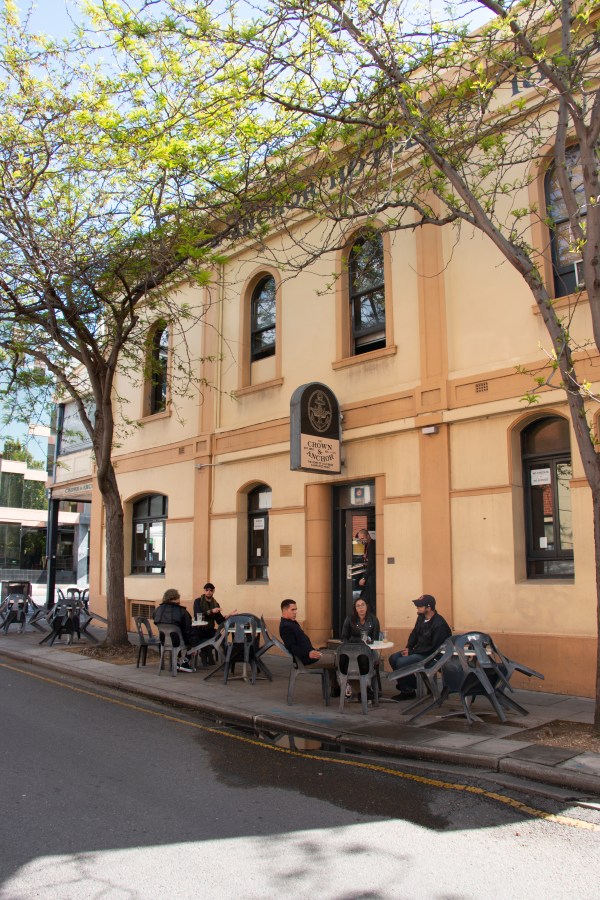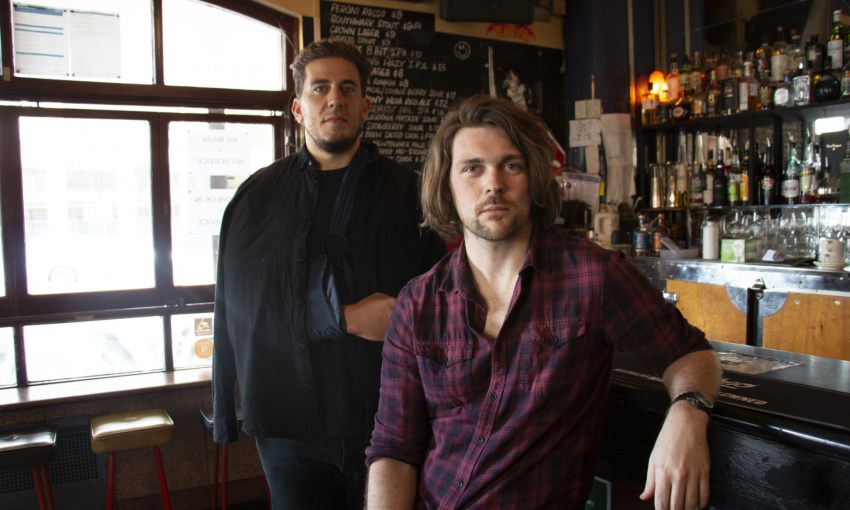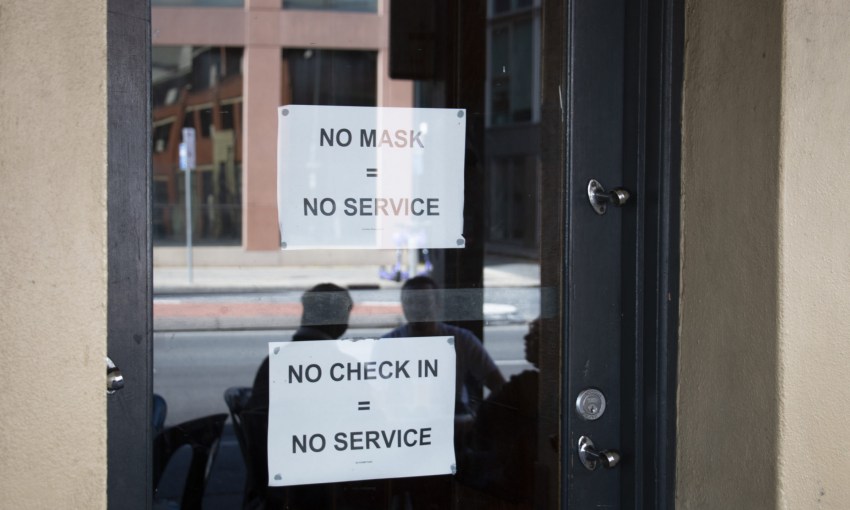Sound technician Zach Stern is earning 10 per cent of his usual income, and musician Ben Whittington recently sold eight guitars to keep a roof over his head. Both music industry workers say they're questioning their careers and doubt the government is listening.
South Australia’s live music ecosystem is being suffocated
As South Australia once again took out the undesirable title of Australian state with the highest unemployment rate in the country, our live music and events industry continues to shed its workforce.
CityMag recently reported on two dedicated music industry workers, Jordan Tito and Courtney Duka, departing Five Four Entertainment due to languishing job opportunities in South Australia’s live music industry.
This followed earlier news of live music venues Lion Arts Factory and Enigma Bar calling for help to keep their lights on, too.
SA’s current COVID-19 hospitality and event restrictions:
- 75 per cent capacities for seated activities;
- dancing is not permitted at nightclubs or licensed premises, except for a private function of up to 150 people;
- food and beverage consumption only permitted indoors while seated;
- COVID management plans required for 1000-people events.
While COVID-19 restrictions outlawing dancing and stand-up drinking continue to suffocate an industry built on a fiscal base of people purchasing alcohol to consume while standing and dancing to music, the exodus of entertainment industry workers keeps apace.
Collectively, the industry is calling for two things from the State Government: either inject stimulus into the withering arts sector, or wind back hospitality and event restrictions so they can go back to their jobs.
“I’ve built this career for 15 years, as an audio engineer, and I literally have been forced to do nothing,” Zach Stern tells CityMag from within the Crown & Anchor, a once-bustling live music venue.
“This is compared to the rest of this country, the rest of the world, who have been back [to work] for the last nine to 10 months.
“I need to provide for my family, and the way that I know how to provide for my family is to be an audio technician.”
Six months ago, Zach and his wife, Katia Labozzetta, had their first child – the bubbly, bouncing Mila. The birth came at a tense time for the pair, who were then living in locked-down Victoria. They’ve since moved back to Adelaide to be close to family.
Zach says his first gig since March 2020 happened 10 months later, in January 2021.
“It was part of Michael Gudinski’s Sounds Better Together concert series,” Zach says.
“It was awful. It was literally like ten months of nothing. Zero.”
Since relocating to South Australia and coming out from under Victoria’s heavy lockdown cloud, Zach says he has still struggled under the weight of South Australia’s own COVID-19 restrictions. His career, he says, is “decimated”.
The career stand-still has been excruciating for someone who usually travels 275 days every year as a front-of-house monitor and audio systems technician, working with names such as electronic dance giant The Prodigy and national treasure Paul Kelly.
“I question my career every day,” Zach says.
“If you look at other states – Victoria, New South Wales and stuff like that – they’ve come up with disaster payments to keep you keep us afloat. And that hasn’t happened in SA whatsoever.”
The South Australian Government recently told CityMag they’d pumped $3.2 million into the local arts industry through the Music Development Office since the onset of the coronavirus. The MDO Project Support Grants offer financial support to venues, music companies, booking agents and other industry professionals twice a year, but has not made the second tier for 2021 available yet.
Zach also works for entertainment production company AJS Lighting Sound Events, which runs smaller corporate events and gigs. To make up for the missing portion of his pre-pandemic income, he also works two days a week in a bicycle shop.
The audio engineer says he could say “a lot of things” to Premier Steven Marshall – who is also Minister for Arts – but if it had to be only one thing, it would be “play fair”.
“If 50,000 people can gather to see the footy, then why can’t 50,000 people go to see a concert?” Zach says.
CityMag asked SA Health what the health advice was regarding 50,000 people seated at Adelaide Oval watching a sporting event, and how this compared to those sitting in Adelaide Oval watching live music, but they did not respond to direct questions.
“Restrictions are currently in place for different Public Activities due to the significant ongoing threat of COVID-19, and the ongoing high risk of potential community transmission,” a statement from SA Health says.
“We cannot afford to become complacent as we work towards our 80 percent vaccination target.
“We will continue to monitor the impact of the COVID-19 vaccination rollout going forward, including in relation to drinking and dancing, to determine when it is appropriate to ease restrictions with the safety of the broader community always the number one priority.”
The statement goes on to say any easing of restrictions is a matter for the South Australian Transition Committee and is based on “risk assessment analysis”.
“Based on projections, if South Australians keep rolling up to get vaccinated at the current pace we will hopefully reach our target of 80 per cent of people aged 16 and over by early December.”
—Chad Pearce

The Crown & Anchor’s general manager, Chad Pearce, says the venue has undergone an identity crisis without a stacked live music program
Prior to the pandemic, local guitarist and singer Ben Whittington would perform four to five times a week in pubs or at concerts, equating to roughly 250-300 shows a year.
But Ben tells CityMag he’s only had 56 gigs this year – roughly a quarter of the work opportunities usually available to him. He’s had to pawn his musical instruments to “feed the dog” and keep the lights on at home.
“Even though we’ve lost our work and we’re not getting any support from the government, that doesn’t stop the electricity, the phone bill, the gas bill, the internet, rent – everything coming in,” Ben says.
“I recently sold eight guitars, making about $4000, which is nowhere near what they’re worth. But at the same time – and I’m not making excuses for anyone else – but I can’t put up a guitar at the price I would like because no one has the money [to buy it].”
Ben says he’s tried switching into a “daytime” trade while he waits for restrictions to ease, but his resume only lists gigging experience. He doesn’t think he stands a chance against younger, more experienced candidates.
“They’re sort of saying, ‘Alright, but we’ve got other people who are a bit more qualified than you to do that,’” Ben says.
“It’s like, ‘You’re a musician. Right.’
“I think about this issue a lot, but I think it’s that point now where, without giving in and just being over it, you’re like, ‘Is anyone listening anymore?’”
Ben wants to be able to return to his career as a musician, and in order for that to happen he wants to see stand-up consumption of alcohol and dancing return to licensed South Australian venues and events. He’s not alone in this request.
The #LetUsDance campaign, launched by members of the South Australian entertainment industry, is also calling on the State Government to recognise the state’s progress in dealing with the coronavirus and immediately allow dancing.
This will be particularly important to venues in the lead up to Christmas, their busiest trade period, and if the government doesn’t listen, more jobs could be on the line, the campaign’s founders warn.
“If SA Health staff or the Premier’s office staff were constantly losing shifts, having work cancelled for over 570 days straight, with no end in sight, then they would have jumped to action a year ago,” says Rob Pippan, a spokesperson for the #LetUsDance campaign. “Yet this is what thousands of workers and hundreds of venues have had to endure.”
“The problem now isn’t necessarily COVID, it’s the inability and unwillingness of the government to offer leadership, consultation and offering of practical business solutions to a multimillion-dollar industry that’s at the heart of SA culture and community,” local musician Jesse Catalano adds.
View this post on Instagram
Chad Pearce is the general manager of the Crown & Anchor Hotel, and tells CityMag the live music venue is suffering financially and culturally under the enduring pressure of COVID-19 trading restrictions.
“The restrictions are definitely hurting us and the culture of the venue itself, because I would say we’ve lost our identity,” Chad says.
“We were doing live music six nights a week and now we can’t do that, especially the way it was.
“We’re almost at a kind of limbo, where we’re just operating as a bar and nothing else.”
The band room, which has hosted national heavyweights such as Amyl and the Sniffers, as well as local luminaries like Jess Johns and The Empty Threats, is now collecting dust as a storage room.
Chad says the pub’s also losing long-time regulars due to the shrinking music program. Younger punters aren’t filling the gap, either.
“Everyone’s doing it very hard at the moment, there’s no denying that,” he says.
“And I understand why there are restrictions, it’s just we need to make sure that venues will be able to see the light in the tunnel.”
Currently, Chad is “not sure” there’ll ever be a light at the end of the tunnel for the Crown & Anchor.





